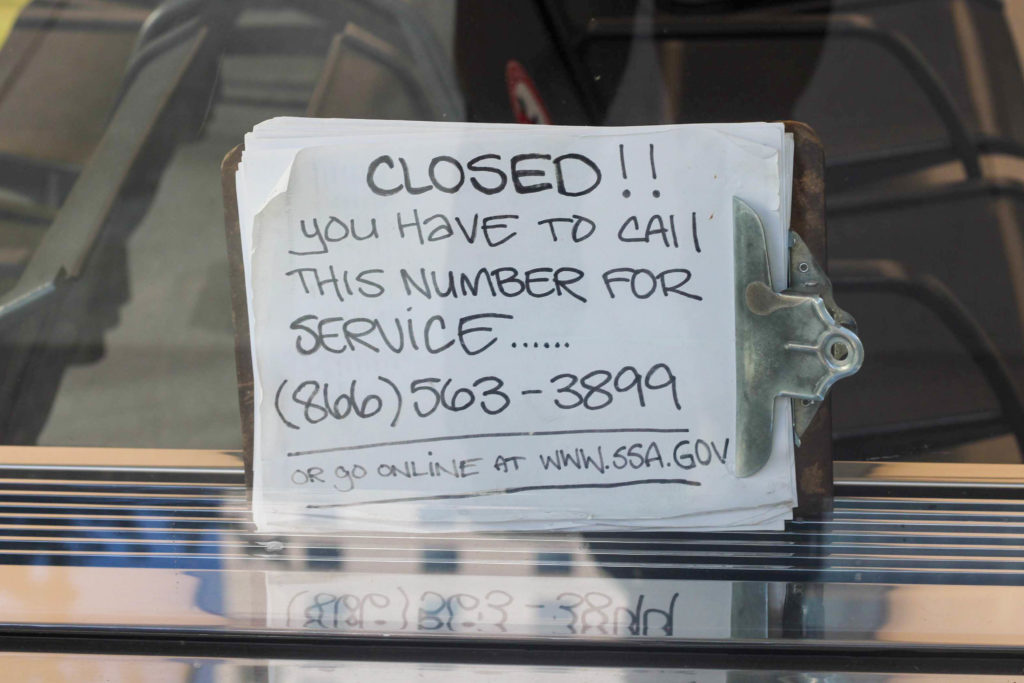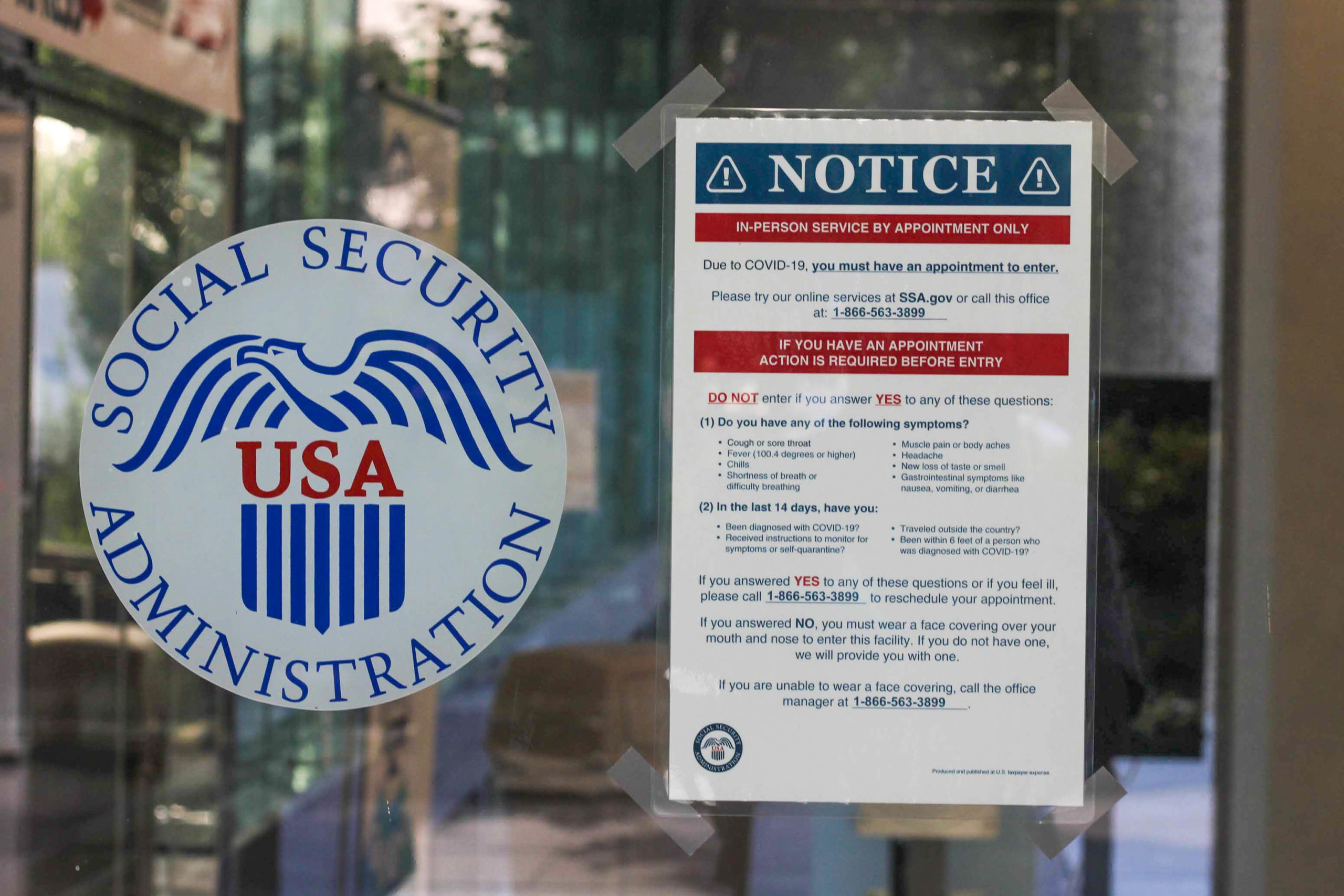For the past six months, Michelle Thomas, a youth case manager at The Night Ministry has been trying to get a new Social Security card for her twenty-two-year-old houseless client. After months of contacting different offices and scheduling an emergency visit to a Social Security Administration (SSA) office that was initially denied, Thomas’s client is still waiting for a card to arrive in the mail.
Thomas has also been trying to obtain housing for her client through an Illinois Department of Children and Family Services (DCFS) and a Chicago Housing Authority (CHA) voucher.
“The people who are distributing this voucher through DCFS and CHA, I don’t think that they’ve been the most understanding in our frustrations or understanding that this literally is the last thing that we need to turn in before people get their housing,” she said.
Thomas’ story is not unique. Since the start of the pandemic, SSA offices have failed to meet the demand for Social Security cards.
Amid an ongoing economic crisis, along with predictions that nearly 750,000 renters face eviction following the Supreme Court’s ruling that ended the Biden administration’s eviction moratorium, the need for Social Security cards for housing and employment applications is ever-growing.

Before COVID-19, people could receive Social Security cards via virtual or in-person applications. Since the start of the pandemic, there has been a forty percent increase in virtual applications, according to a SSA dataset.
In July, the SSA’s Office of the Inspector General (OIG) released an interim report addressing the backlogs of unprocessed applications for new or replacement Social Security cards through mail and enumeration services during the pandemic.
Of the seventy-three SSA facilities audited for the interim report, one field office had 677 unprocessed applications dated as early as July 2020 while another SSA facility had over 9,000 unprocessed applications dated as early as May 2021. The report did not specify where the problem offices were located.
Local social-service organizations fear that unless Social Security Administration offices remedy their administrative pitfalls, applicants will not find success in obtaining vital materials, subjecting them to an increased risk of remaining unsheltered and unemployed.
The OIG concluded that the SSA “lacks comprehensive policies and procedures to track and return original documents—including driver’s licenses, birth certificates, passports, and naturalization documents that customers provide as proof of eligibility for benefits or a Social Security number card.”
The interim report did not provide potential or immediate solutions to the document request backlogs or procedural pitfalls.
“We plan to issue our final report on the mail audit by the end of the calendar year, and our enumeration audit in the first quarter of 2022. Both reports will provide more detailed information about our work, and SSA’s response and planned actions,” said a spokesperson from the Office of the Inspector General.
Document request backlogs and office closures have worsened pre-existing challenges that unstably housed youth face, according to Beth Cunningham Malik, who is the associate director of The Law Project and lead attorney for the Youth Futures mobile legal aid clinic at the Chicago Coalition for the Homeless (CCH). The Youth Futures program serves young persons between fourteen and twenty four.
According to a recent report from the University of Chicago’s Inclusive Economy Lab, out of students that attend CPS for four or more years, thirteen percent of those students experience homelessness. Among Black students, that number increases to twenty-five percent. In a given year, one in twenty CPS students is experiencing homelessness.
“Our clients, given the fact that they’re often moving from place to place, have to carry all their belongings with them, they’re having their belongings thrown away or stolen on a regular basis,” Cunningham Malik said. “It’s really hard when you have to start from scratch or start from the beginning to access all those vital documents. [The] U.S. Department of Housing and Urban Development requires certain documentation like a Social Security card and the state ID or birth certificate, and if they don’t have it, they’re at risk of losing that housing opportunity, which is huge.”
The lack of in-person appointments has prompted the SSA to get people to apply for replacement cards through their My Social Security account. But “It’s very hard for individuals within the community that we serve to set up these accounts,” Cunningham Malik said, referencing internet accessibility issues. Additionally, the lack of address history makes young people more vulnerable to the closure of the SSA offices since the websites still heavily rely upon a permanent address or prior history of addresses to send further verification.
Housing shelters also face barriers for their clients due to the type of address they have. La Casa Norte and the Night Ministry, two organizations that provide services to people experiencing homelessness, both have had challenges because their offices are considered to be business addresses. In the last eighteen months, case manager Erin Ellenbolt at La Casa Norte has only had one client successfully obtain a social security card because the client had access to their grandmother’s address. But in many other instances, Ellenbolt said Chicago Housing Authority officials refuse to offer her clients housing because they did not receive their cards to claim a housing voucher.
In her experience, urgent appointments were almost never granted by local SSA offices.“The Social Security office will do appointments now on an emergency basis,” Ellenbolt said. “But in no way have we been able to convince them that somebody’s housing is an emergency.”
The SSA now allows in-person appointments for Social Security cards for individuals age twelve and older who are applying for their first Social Security card or need to update their SSN information, or for individuals who need to “obtain income, resources, or medical care or coverage, or other services or benefits, applying (for example filing a tax return, applying for housing, or seeking an Economic Impact Payment),” according to its website.
“If you’re making this an option, which it hasn’t been for the majority of the pandemic, how are you communicating that to those who can now access this?” said Serena Chapa, a drop-in specialist at La Casa Norte. “That’s something even we struggle with.”
Since the end of the eviction moratorium, the pressure to process document requests in this heightened period of economic distress is compounding on an administration that has fallen behind and has understaffed offices, according to local advocacy groups.
“Each week we are increasing the number of personnel in our field offices to provide more in-office appointments … We are also reaching out to those who may be most impacted by office closures,” said Doug Ngyuen, Regional Communications Director of the SSA. “Our reentry plan will be phased and will take into consideration health conditions and any applicable labor obligations.”
As short-term solutions are slow-rolling and require more attention from state and federal officials, the prospect of long-term, remedial administrative policy remains top-of-mind for housing advocacy organizations wanting to safeguard their service populations.
“Say we go back into shelter-in-place or another crisis happens,” Chapa said. “Is this population going to be forgotten again?”
Noah Tesfaye is a Bay Area-born journalist and rising third-year at UofC studying political science and critical race & ethnic studies. He last wrote about tenant organizing in the South Side for the Weekly.
Peter Winslow is a freelance journalist and investigative journalism student at Northwestern University’s Medill School of Journalism. He last wrote about the Exchange 55 warehouse in La Villita for the Weekly.

